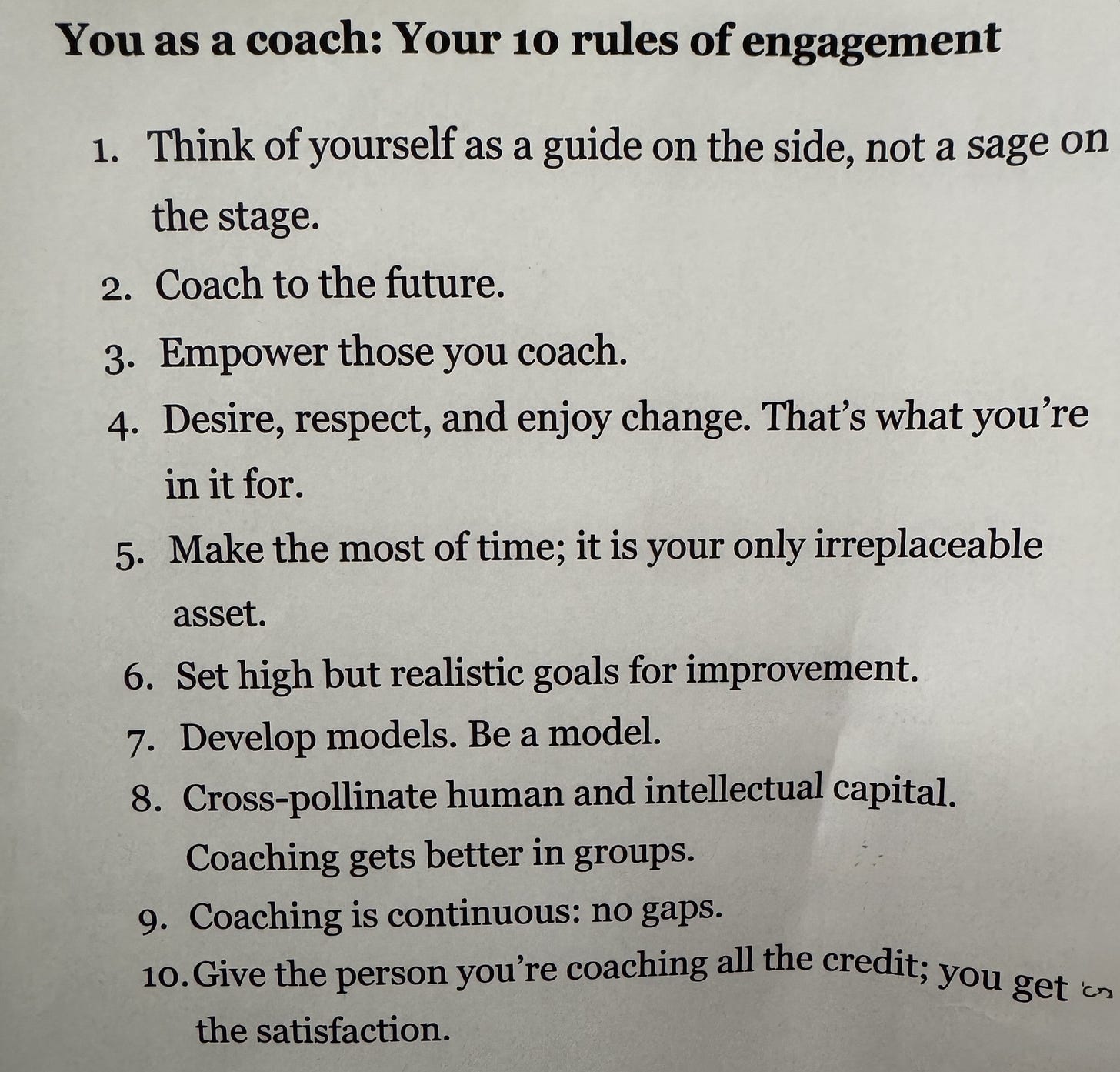A decade of coaching
This is what I've learned
How I started as a Marketing Coach
Before I started coaching, I had a utopian idea of offering brand strategy services for small businesses. I had just finished Grad School which trained me to “see the big picture”.
Quickly, I learned that small businesses were not interested in a brand strategy service but they did appreciate my marketing advice. That’s when it dawned on me: “I could just talk and guide, and leave the execution to them!”
And that’s how I stumbled into coaching.
No certifications. No courses or extra education.
What is business or marketing coaching?
A coach is not a companion, nor a therapist. And in my opinion, a good business coach is not there to remove emotional or mental block about money or business.
Ideally, a good coach will take you from a place where you are to the place where you want to be (provided you do the work). So a good coach is not a magician either.
In fact, I once found an article that listed 10 rules of engagement for coaches. Unfortunately, I have no record of the article, its author or publication. (If you do, please let me know)
But I printed the rules and put them on a wall besides me. Here they are:
What works in coaching
The number one thing that works for a coaching business model is price. And that applies to high-end coaches as well.
When you hire a coach, you are not hiring someone to execute for you. If you were, the price point would be much higher. You would have to pay people for their time and skills. But when you hire a coach, you buy someone’s expert opinion and insight.
And although that could be incredibly valuable, you are in charge of the execution, including time and money.
What doesn’t work in coaching
Here’s what I learned, a coach is only as good as their client’s willingness to execute. If a client is not doing the work, and not applying the advice, coaching is ineffective. I had my share of clients who lost all their enthusiasm after the second session, despite paying for the entire program.
On the other hand, I’ve had clients who were diligent and exceeded their own expectations by the time we finished working together. It’s a crapshoot.
So selling to a coaching client who’s not ready to do execute just doesn’t work.
One shoe doesn’t fit all
We’ve all heard about developing a “Flagship Program”. A program based on a specific process that you can sell instead of exchanging time for money. I’m not against it, but…
Your Flagship Program needs to be flexible enough for each client’s individual needs. Otherwise, all you’re doing is instructing people on a bunch of tactics that worked for you. But the problem with tactics is that they can be affected by market changes, industry, and technology.
I realized early on that my program needed to focus on strategy first, adding the tactics that are in line with my clients’ resources and business stage.
Do I still believe in coaching?
I won’t lie, coaching is tiring. It’s being completely attuned to the other person while teaching them at the same time. It also means being organized with your thoughts and documentations, and offer feedback and accountability.
Now that I’m taking the time to reflect and include more Done-For-You offerings, I’m still thinking “Is it worth my while?”
The truth is, I love coaching. I love the “Aha!” moment in my sessions with clients when they realize the possibilities that haven’t even crossed their minds. That’s truly priceless.
But I love coaching those who want to to do the work.
So yeah, I believe in coaching, but I believe in being selective with it. And so should you.
Want help thinking through your next move?
I offer 1:1 strategy sessions for business owners who are ready to take action, not just gather ideas.
It’s $250 for a personalized, focused hour with a written summary and clear next steps. Book your session here →


